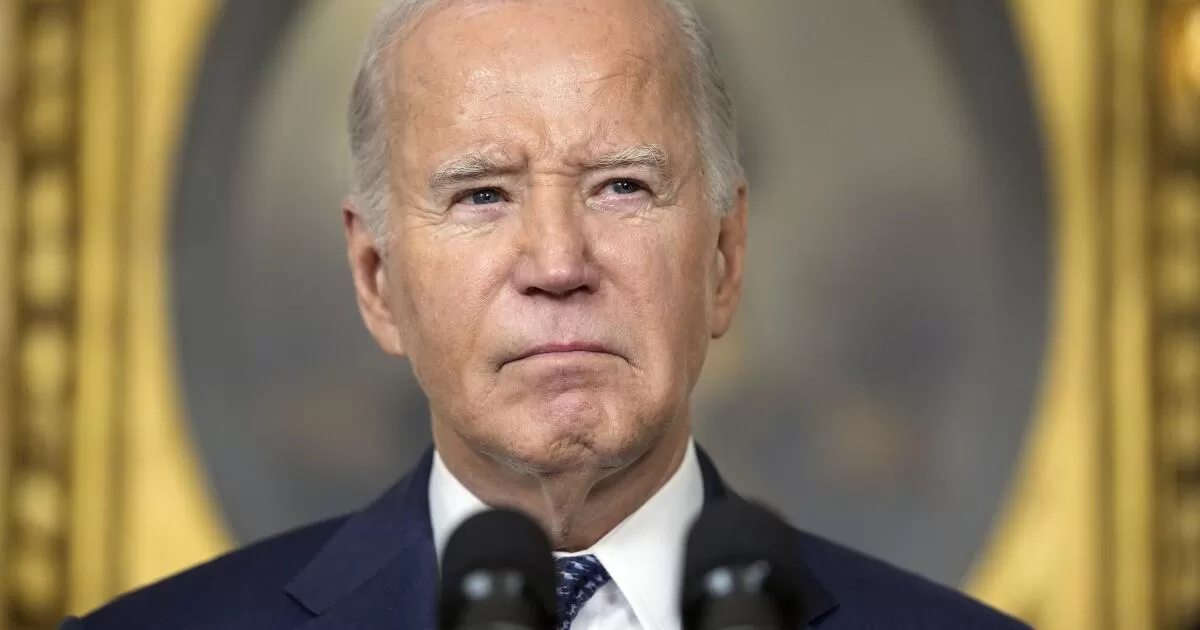During the 2020 presidential campaign, then-President Donald Trump publicly charged that Biden, then only 77, was suffering from “dementia.” The insult didn’t stick; Biden campaigned effectively enough to defeat Trump that November.
But the controversy over the president’s mental fitness has only intensified as he has sought a second term.
Biden’s age, as the oldest man ever to serve as president, inescapably weighs on voters’ minds.
Thursday’s report from special counsel Robert Hur deepened Biden’s political problem by painting a more damaging official picture of the president than had been seen before.
The report said Biden, now 81, came across as a “well-meaning, elderly man with a poor memory.”
That may have been the nicest thing it said.
In his interviews with Hur, Biden had difficulty remembering which years he had served as vice president and what year his son Beau had died, the report said. His memory of a White House debate over Afghanistan, a subject on which he was once passionate, was hazy.
In response to one question, the president replied: “If it was 2013, when did I stop being vice president?”
Biden and his aides responded to the report with fury.
“I know what the hell I’m doing,” the president told reporters a few hours after the report’s release.
On Friday, Vice President Kamala Harris, a former prosecutor, called Hur’s decision to include the details of Biden’s memory gaps “gratuitous” and “politically motivated” — a talking point other Democrats repeated throughout the day. (The special counsel is a Republican who was originally appointed by Trump.)
Aides suggested that Biden might not have been at his best when he met with Hur. They said he was focused on the Oct. 7 Hamas attack on Israel, which had occurred only a few days before the interviews.
Still, as Biden demonstrated, the issue of his fitness threatens to surface every time he appears in public. On Thursday, in the news conference he called to defend his mental acuity, he misidentified the president of Egypt as the president of Mexico.
The question is present on both sides of the presidential campaign, since Trump, who turns 78 in June, would be the second-oldest man ever to win a major party’s nomination.
And Trump, too, often appears to suffer from memory lapses.
He recently confused Nikki Haley, his last remaining challenger for the GOP nomination, with Nancy Pelosi, the former Democratic speaker of the House.
He referred to the president of Hungary as the president of Turkey.
He bragged last year that he had defeated President Obama in the 2016 election, when his opponent was Hillary Clinton, and claimed that he had won all 50 states that year (he won 30).
He warned that Biden might lead the country into “World War Two.”
Polls suggest that most voters perceive Trump as more vigorous than Biden. An NBC News poll this week showed Trump ahead by 16 points on the question of who is more competent and effective.
In a YouGov survey released Friday, 47% of voters said that Biden’s health and age would “severely limit his ability to fulfill his duties” if he were reelected in November. Only 32% said the same about Trump.
But neither candidate emerged from that survey a clear winner.
The YouGov poll found that roughly the same share of Americans thought that either Biden or Trump would be fit to serve another term — just over one-third in each case. One in five said that neither would be fit.
Trump has glaring flaws beyond his memory problems. He is the undisputed king of presidential mendacity; the Washington Post has estimated that he made more than 30,000 false or misleading claims during his four years in the White House.
He frequently expresses admiration (or perhaps envy) for dictators such as Russian President Vladimir Putin and North Korean leader Kim Jong Un.
Trump has also argued that a president should be immune from federal laws, and that the provisions of the Constitution that allowed Biden to win the 2020 election should be “terminated.”
And, of course, he faces a stack of indictments in four separate criminal cases, including one for refusing to turn over classified documents after leaving the White House. Although Hur criticized Biden’s memory, he also made a point of contrasting Biden’s cooperation with Trump’s stonewalling.
“After being given multiple chances to return classified documents and avoid prosecution, Mr. Trump allegedly did the opposite,” Hur’s report said. “According to the indictment, he not only refused to return the documents for many months, but he also obstructed justice by enlisting others to destroy evidence and then to lie about it.”
So yes, both candidates have memory problems. The more important question is: Whose judgment is sounder?
Biden’s response to reporters’ questions about his fitness sounded straightforward: “Watch me.”
Voters are entitled to respond: “OK, show us.”
But the president and his aides have carefully rationed his public exposure.
He hasn’t done many town halls, an exercise he once enjoyed. He’s ducked most requests for media interviews. He even passed up a chance for a nationally broadcast interview at Monday’s Super Bowl, an opportunity most presidents take to reach a gigantic audience.
Several years ago, I asked Biden what strategy he relied on to bounce back from a gaffe.
“Own it,” he said.
But in response to Hur’s report, he angrily denied that he had any serious memory problems.
“They don’t know what they’re talking about,” he said of the prosecutors.
But he might be better off if he took his own advice — and acknowledged his fumbles.
After all, the voters’ choice is between two elderly men with poor memories — and only one of them doesn’t respect the Constitution.
The question isn’t whose aging memory is sharper. It’s whose flaws are more dangerous.
